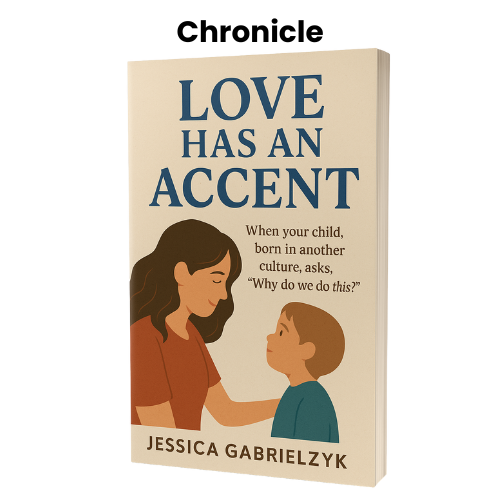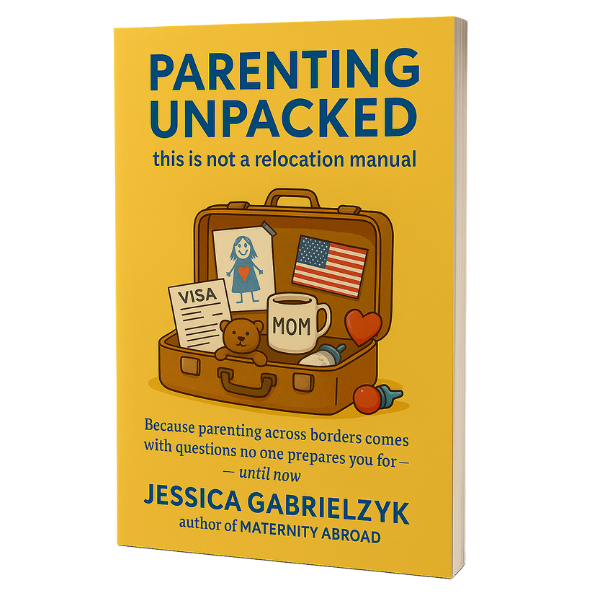Love Has an Accent 💛
I recently shared a piece very close to my heart on the Brazilian platform Mães que Escrevem. Since that publication was in Portuguese, I wanted to bring the story here in English so my community outside Brazil can read it too.
It’s about what it really feels like to raise a child far from home — when even a simple moment at the playground reveals how much culture shapes our idea of what it means to be a “good parent.”
The other day at the playground, my daughter fell. Nothing serious — just a scraped knee and a startled cry. Instinctively, I half-stood, a shout already forming: “Oh my God, be careful, sweetheart!” But I stopped halfway.
Here in Switzerland, no one runs. No one yells. Parents stay seated, reading or sipping coffee, while children climb structures that, in Brazil, would make even adults nervous. A father nearby lifted his thumb to his son, who was dangling from a rope above the gravel. I sat there, heart racing, my words caught somewhere between two languages of love.
Raising a child abroad isn’t only about learning new words; it’s about unlearning your old tone of voice. It’s about questioning what it means to protect, to care, to teach.
In Denmark, babies nap outside cafés. In Australia, birthdays are celebrated with store-bought cake and a picnic in the park. In Brazil, we rent a hall, inflate balloons, and invite every cousin we’ve ever met. All of it, in its own way, is love.
Then one day your child—born into another culture—asks, “Why do we do this?” You start to answer, because it’s beautiful, because it’s ours, and then you stop. The question is fair, and it hurts precisely because you don’t have a clear answer.
The truth is that love has an accent. It carries rhythm, volume, and scent. It can sound like laughter under rain or smell like beans simmering on the stove. When we move countries, love doesn’t vanish; it just changes its grammar.
We learn to love with fewer words, or gentler ones. Sometimes with louder ones, depending on the zip code. And we discover that being a good mother or father has no literal translation. It requires listening, adjusting, and the quiet courage to keep loving in a language that will never sound entirely native again.
Other Publications
💌 Don’t navigate pregnancy abroad alone. Start reading Maternity Abroad today and find the guidance, comfort, and real stories you’ve been searching for.









What does it really mean to be a “good parent” when you’re raising your child in another country? In my latest post, I share how even a simple day at the playground in Switzerland revealed how culture shapes love, care, and parenting — and why I believe love always has an accent.